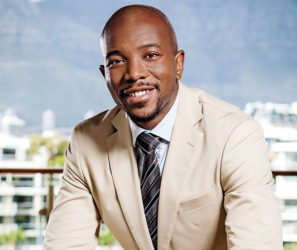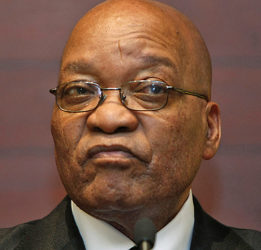JOHANNESBURG (Reuters) – The African National Congress lost its grip on local government in Tshwane, home of the South African capital Pretoria, as results yesterday gave the opposition Democratic Alliance a second big win in the ANC’s worst election since the end of apartheid.
The results of Wednesday’s voting have reshaped the political landscape in South Africa, where the ANC has ruled virtually unopposed since it ended white-minority rule in 1994, led by Nelson Mandela.
Unemployment, economic stagnation and scandals around President Jacob Zuma led voters to punish the ANC, changing the outlook for national elections in 2019 and potentially emboldening Zuma’s rivals within the ANC to challenge him.


Saving some pride, the ANC won in Johannesburg, South Africa’s economic and financial hub, taking 45 per cent of the vote to the DA’s 38 per cent, but will have to form a coalition to govern.
Wins in Tshwane and in Nelson Mandela Bay, which includes the manufacturing hub Port Elizabeth, are a watershed for the DA, which also held Cape Town, a municipality that it has controlled since 2006.
Last year it elected its first black leader, Mmusi Maimane, as it tried to shake off an image of a party mainly serving white interests. “It signals to everyone that the tide in our country is turning,” Maimane told reporters yesterday.
The ANC still won the most votes overall, and was working to form coalitions in the municipalities where it lost its majority.
“We are into negotiations as we speak,” said Paul Mashatile, the ANC chairman in Gauteng province, which includes Tshwane and Johannesburg.
“It’s quite clear that our people, our traditional supporters, are still with us but maybe not too many people came out to vote so we need to go back and find out why.”
The DA will also need to form coalitions to govern in both Tshwane and Nelson Mandela Bay.
In his first public remarks since the vote’s outcome, Zuma said South Africa was a “democracy where differences of political opinion and diverse political preferences are allowed to flourish.”
The ANC has lost support among voters who feel their lives have not improved, and the opposition has accused Zuma of mismanaging the economy. Millions of urban voters are now looking beyond its liberation struggle credentials and focusing on an economy teetering on the edge of a recession.
Zuma rattled investors in December by changing finance ministers twice in a week, sending the rand plummeting. The currency has since recovered and received a boost from the lack of violence during the local elections.
The president survived an impeachment vote in April after the Constitutional Court said he had broken the law by ignoring an order to repay some $16 million in state funds spent on renovating his private home. Zuma has since said he will repay some of the money, as ordered by the court.
“The ANC may just become a rural party,” said William Gumede, head of the Democracy Works Foundation think-tank.
The radical leftist Economic Freedom Fighters (EFF) party led by Julius Malema, Zuma’s one-time protégé but now arch-foe, came a distant third in the local elections, with about 10 per cent of the vote.
Malema has drawn support with promises to nationalise banks and land and redistribute among poor black people wealth still mostly in white hands – policies that both the DA and the ANC have not found palatable.
With the ANC and DA both seeking to rule in Johannesburg and Tshwane, the EFF could be courted where coalitions are needed.
Malema has not revealed who he would back, saying: “If anyone comes to us, we’ll talk.”
Meanwhile, anti-rape activists protested yesterday as Zuma delivered his first remarks after the local elections.
Zuma ignored the protest while his security guards stood nearby, apparently surprised by the protest by four women dressed in black and holding up placards, some with the words “Remember Khwezi” and “10 years later”.
“Khwezi” is the assumed name of an HIV activist who, in one of the most sensational cases in South Africa, accused Zuma of rape in 2006 before he became president. He was acquitted of the charges, keeping alive the political hopes of a man who went on to become president in 2009.
Zuma had pleaded not guilty to raping “Khwezi” at his Johannesburg home, but his lawyers said he did have consensual sex with then 31-year-old woman. Zuma’s spokesman was unavailable to comment. There was no comment from other government officials.
Glen Mashinini, chairman of the electoral commission, apologised to Zuma, saying “this took us by surprise, and we really want to apologise to all of you” to the gathering that included cabinet ministers and political party chiefs.
In his speech, Zuma said the elections had been well run and proved that South Africa’s democracy was maturing.
Zuma, 73, has survived several political and personal scandals.
The rape case has caused political damage to Zuma, particularly because he conceded that he had had unprotected sex with the woman, despite knowing that she was infected with HIV.
AIDS activists criticized Zuma – who said he took a shower afterwards to prevent possible HIV infection – for what they said was his spreading of misinformation about the disease in South Africa.





